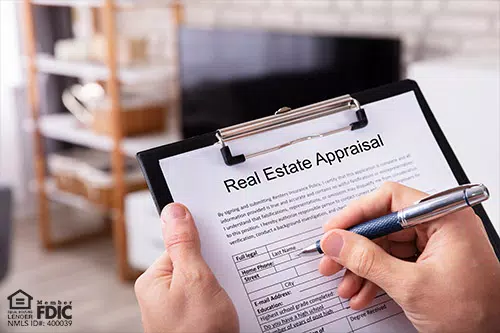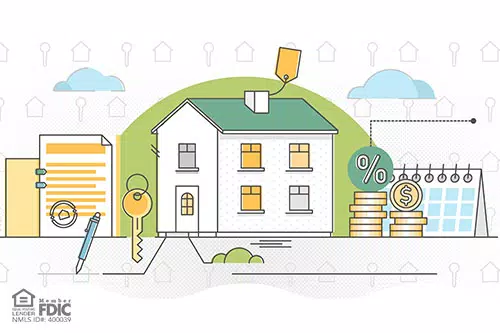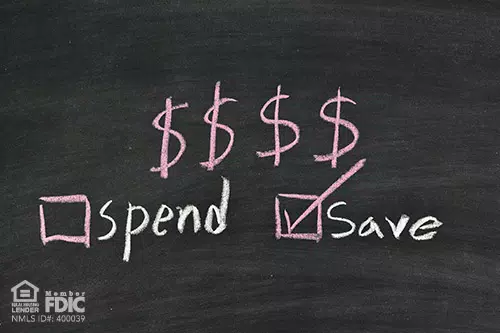A lender doesn't want to invest money in a property that isn't worth the value. And you, as the borrower, shouldn't pay more than the house is worth. Hence, a home appraisal protects you and the lender from making a poor decision.
How a Home Appraisal Works
Lenders will require that a property is appraised before approving your loan request. They will use specific appraisers to do this work to ensure consistent appraisals. Appraisers must be certified and licensed to do this work, so you can rest easy knowing that a qualified professional will be involved.
In most cases, you will be responsible for paying the cost of an appraisal as part of the closing costs. The cost varies depending on the price of the property, though it is generally around $500. It's important to note that the appraised amount includes the total value of the home, the land it is built on, and other permanent structures present.
Residential property is appraised through two primary methods. One is the sales comparison approach, which involves comparing three or more homes that are similar to the one you are purchasing. These homes are often called comparables or comps since they have been sold nearby. Specific features, such as the square footage, age of the house, and finished (unfinished) spaces, are considered in this evaluation. Generally, new properties are appraised using the cost approach. With this method, the appraiser estimates the cost of replacing the property if it were destroyed.
In most cases, an appraiser will inspect the interior and exterior of the property to begin their evaluation. External factors include:
- The type of neighborhood (urban, suburban, rural)
- Size of lot
- Zoning classification
- Land use in the area (one-unit, two-unit housing, commercial)
The internal factors that the appraiser reviews will be tied closely to the condition, size, and structure, including:
- Square footage of the home
- Number of bedrooms and bathrooms
- Type of foundation
- The material type that is used for the floors, windows, and walls
Other sources of information, including records at the county courthouse, will be used to complete their appraisal report. This report contains an explanation of how the appraiser determined the property's value. Other information that's generally included in the appraisal report include:
- Findings if there are structural problems uncovered, such as a cracked foundation
- Recent market trends in the area
- Comparative market analysis
- The condition and size of the home with notes about improvements made on the property
- Photographs and other visuals
What Happens If Your Appraisal Comes Back With a Lower Value?
Let's say you are in a scenario where you've offered $325,000, and your appraisal comes in at $275,000. The lender will not lend you the amount you offered to purchase this home. At this point, you need to identify the reasons for the low appraisal. There could be factors that could be corrected, such as repairs. You can then request that the seller complete the necessary repairs.
Negotiate with your seller to lower the asking price. You might also increase the down payment to make up the difference. If you can't devise a compromise and your lender isn't willing to finance the property, it's time to cancel the transaction. The purchasing contract has contingencies that allow you to cancel if specific terms aren't met.
If you have questions about securing a home mortgage, call the experts at NASB at 888-661-1982.




